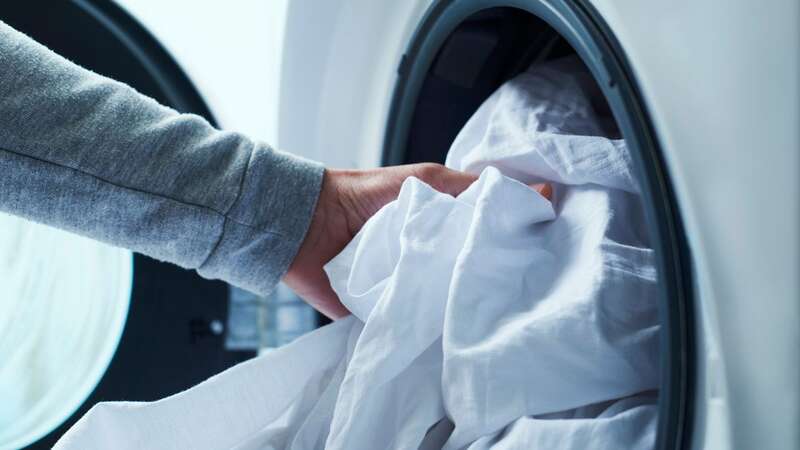

A laundry whiz has warned that washing towels wrong can make germs grow.
Over a million people in Britain only wash their bathroom towels once a year - even though clean towels have 190,000 germs, and after just one day of using them, this number goes up to 17 million. A laundry expert says if you know the right way to wash towels, they will stay clean longer and last longer too.
Allen Civlak, who knows loads about laundry and is the boss of Mary's Kitchen Flour Sack Towels in the USA, has talked about seven myths about cleaning and given top tips on what you should really do, reports Nottinghamshire Live. Allen shared: "The average towel lasts for two to five years, depending on the quality of the towel, how often it's used, and how it's cared for. Washing towels properly can extend their lifespan, allowing you to enjoy their spa-like softness and absorbency for much longer."
Myth 1: Towels only need cold water
Allen said: "While cold water works well for some fabrics, it's not ideal for towels. It's important to check the washing label of each towel for temperature recommendations, as they can vary. Hot water, typically around 140F/60C, is more effective at killing bacteria and removing body oils trapped in towel fibres. To avoid damaging fibres, opt for a medium heat setting or fluff cycle when drying. Treat your towels to a hot wash with white vinegar every few months to remove detergent build up and keep them smelling fresh."
 Engineer shares common washing mistake that could be damaging your machine
Engineer shares common washing mistake that could be damaging your machine
Myth 2: More detergent means cleaner towels
Allen said: "This is a big misconception! Excess detergent can worsen your towels by leaving behind a residue that makes them stiff and less absorbent. To keep your towels fluffy and soft, use a high-efficiency detergent and stick to its product instructions."
Myth 3: Fabric softener makes towels fluffier
Allen said: "Fabric softener might seem like a nice addition to your laundry routine, but it actually coats towel fibres, reducing their absorbency over time. Skip it and embrace the natural texture of clean towels. For extra fluffiness, try adding a half cup of white vinegar to the rinse cycle."
Myth 4: Towels can wait in the washing basket
Allen said: "Damp towels are breeding grounds for bacteria and mildew. Always hang your towels up to dry completely after each use before tossing them in the hamper. Shake towels straight after they finish drying to keep them feeling as plush as possible."
Myth 5: Washing towels with everything else is fine
According to Allen: "Towels can trap lint from other clothes, so it's best to wash them with similar items like bath mats or washcloths to minimize lint transfer. Always separate different coloured towels before washing to prevent colour runs, and avoid washing white towels with coloured ones to maintain their brightness.
"Overloading the machine can also prevent water circulation and rinsing, leaving towels dirty and prone to mildew. Front-loading machines typically accommodate around seven bath towels, while top-loading machines can handle around 10. Capacity does vary, though, so it's always worth checking the user manual."
Myth 6: You can use new towels immediately
 Cheapest way to dry clothes in the winter - from heated airer to tumble dryer
Cheapest way to dry clothes in the winter - from heated airer to tumble dryer
Allen advises: "Washing new towels before your first use is a simple way to extend their lifespan and ensure they are clean and safe. A quick wash helps to remove any chemical residues and soften the fabric."
Myth 7: You should dry towels on radiators
Allen warns: "Avoid drying towels on radiators as they can end up feeling scratchy. Instead, throw them in the dryer on a no-heat cycle to fluff up the fibres. If you have the option, line-drying outside is the best way to maintain their fluffiness and freshness. Always make sure towels are completely dry before folding or rolling them to retain their texture."
Myth 8: Towels last forever
He said: "High-quality towels made from materials like cotton or bamboo can last for several years with proper care, but even they won't last forever. Over time, all towels lose their absorbency. If they become stiff, thin, and aren't as absorbent, it's time to replace them and refresh your collection."